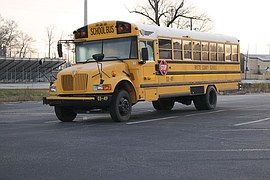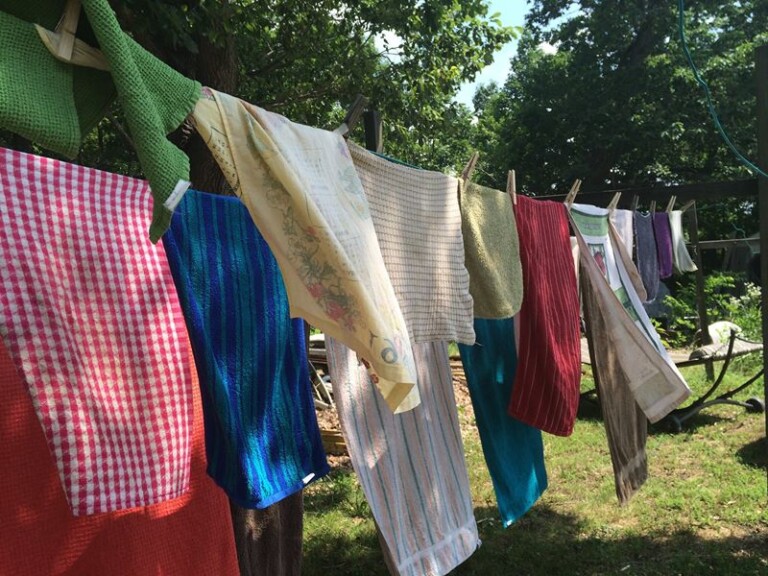10 Back 2 School Tips: Making It the Best Year Yet
Back 2 School
Back 2 school time is here. No matter where you choose to educate your kids, there are things you should and should not do. Here are 10 helpful tips to get you started as your kids head back to school. I truly wish you the best school year yet!
Many parents choose alternatives to public school. There are parents who send their kids to a private school or a Christian school, and there are parents who choose to homeschool. No matter where they are educated, it’s important that we teach and model integrity and an attitude of “doing your very best” in their school days.
Even though we chose to have our kids in public school, this blog post isn’t saying you’re doing it wrong if you choose a different approach. A few years back I had a friend who shared with me that their schooling journey with their three children changed year by year.
“We take it year by year, and child by child,” she explained.
That particular year, she was homeschooling one child, one child was in a Christian school, and the third was in a public school. She explained their reasons, and they made sense to me.
Please don’t criticize someone else’s approach. If you think they’re wrong, pray for them. Remember to pray for your own kids as well.
Preemptive Tips
Back 2 school is not just for students. It’s also for the parents. Some of you might think I’ve gone “from preaching to meddling,” but here goes.
“I wonder who is going to be my teacher this year!” This sentiment was often heard in our house the last weeks before the beginning of school. No matter if a child had a single teacher or a group of teachers, the concern was always Who.
One afternoon a kindergarten teacher said to me, “I’ve been teaching in this school for years, and I’ve never gotten to have one of your kids. I don’t understand why.”
Our youngest was entering kindergarten, and it was her “last chance” at having one of those Slabach kids. It seemed she thought perhaps we had requested specific teachers for our children.
While I was flattered that she wanted to have one of our kids in her classroom, I also knew that she might have found out our kids weren’t as perfect as others seemed to think they were.
The thought that we would have requested specific teachers for our kids stymied me. We didn’t. The only thing we did was pray, and I told her so.
Principles to follow for back 2 school
We would have to have a biblical reason for requesting – or requesting to not have – specific teachers for our kids. I’m here to tell you that, depending on in whose classroom our kids might have ended, we’d have gone to bat. It’s something we never needed to do.
Over the course of our kids’ education, we’ve been through over 250 teachers from grades K-12. I learned to get a quick feel of things from our visits during an open house.
I recognize that school systems are different in different counties and regions. No matter where your kids are in school (whether public, private, or homeschool), there are some principles to consider. Implementing these will go a long way in helping your child (and you) have a successful school year.
10 Back 2 school tips
- Be positive where you can be. How many notes of appreciation do you write to your children’s teachers? Start at the beginning of the year and let the teachers know you have their backs. Give your support where you can, and be appreciative of the efforts of your child’s teacher. Then if you ever have a complaint, the teacher will be more ready to listen because you’ve been positive earlier.
- Don’t let the classroom activities (or teacher) negate what you teach at home. Let your child’s teacher know that, even though you might not be on the same page as he/she is, there are some things you expect: that what is taught in his/her classroom will not negate what you are teaching your children at home. Meet with the teacher ahead of time if you think it is necessary. You might be surprised at how receptive he will be to your concerns.
- Listen to the teacher’s side of the story. Let your child’s teacher know that you expect to be informed if your child has negative behavior. “If he’s in trouble in school, he’s in trouble at home” should be your philosophy. This doesn’t mean that you will discipline your child for anything the teacher reports to you without investigating. It does mean that you’ll be hearing both sides of the story and take action accordingly.
- Listen to your child’s side of the story. Let your child know “If you’re in trouble in school, you’ll be in trouble at home.” Your child will know that this isn’t blanket insurance for the teacher. If your child knows that you’ll be contacting the teacher to get his/her side of the story, he will be less likely to embellish what actually happened in the classroom.
Personal instances
I recall on one occasion when a child came home and gave me a long story about something that had happened in the classroom that day (regarding his excuse for poor behavior). I replied, “Well, after I call the teacher and hear what she says, I’ll talk to your father and then we’ll go from there.”
“Oh that’s all right, Mama,” the child replied. “You don’t need to call her.”
Another time we received a call from the school regarding an incident with our child. When we researched the situation (hearing both sides from our child and the adults involved) my husband made an appointment with the school. After meeting with those involved, it became clear that an injustice had been done in how things were documented, and an apology came forth from the adult who brought the charges. Even though Dave was frustrated with what happened, his attitude toward the adults was respectful and kind. What happened had no negative effect on our child’s school file. We recognize that educators are not immune to making mistakes, and we needed to show grace because we’ve often needed it ourselves!
5. Your child does not need to participate in everything. “Everybody is participating” is not a reason for your child to participate. You have the right to withdraw your child from activities that you feel are not supportive of the principles you are teaching at home.
Truthfully, it seems like it’s easier to do that in a public school than a private (especially a Christian) school. There is less stigma toward a child who doesn’t participate because ethnic and religious backgrounds are so varied that teachers aren’t surprised when a child isn’t allowed to participate. When public school administrators know your positions, they expect you to be different and are not surprised when there are activities in which you do not want your child to participate.
6. Discuss concerns with the teacher before an event. If you have concerns about specific holidays, school productions, or a field trip, talk to the teacher ahead of time. Your children don’t need to attend a Halloween party. They can be excused from art activities (and you’d be surprised at the number of children who, from various religions, are excluded from some of these activities). If your child comes home and is disgusted that another child can’t participate in such activities as Mother’s Day (yes, it happened in our school), be supportive of those parents and that child. Your kid will learn quickly whether or not you think your reasons are good enough to be exempt, but other parents’ reasons are not.
7. Volunteer. Offer to help at the school. There is bound to be something you can do, even if you do it from home. I’ve helped cut out patterns for activities, baked cookies, provided pizza, and sweated ferociously on field day. Maybe you don’t want to provide snacks for a Halloween party, but are you willing to do it for a Valentine’s party? Can you volunteer on a field trip? I was always amazed at the things I learned about my child and her classmates just by spending a few hours as a volunteer in her classroom.
On one field trip, I was paired with four other boys plus my own son. By the end of the day, I figured out why. I had been assigned some of the most unruly boys while other parents had one other child besides their own. Not this mom. I knew I was in trouble when my fifth grader said to me that morning after I received my assignment, “It’s okay, Mama. I don’t think they’ll be too bad.” I could have complained to the teacher and refused to be responsible for those boys – but what would have been my purpose? All of us survived, and some of those boys still seem happy to see me if I run into them in town.
8. You are not the teacher or the administrator. You really aren’t! Your husband might be on the school board, but that doesn’t give you license to manipulate, nor does it give your child special privileges. No teacher should turn his back on your child’s behavior just because of who his father or grandfather are. Nor should they curve a grade because of who a child is, but it happens all the time. If we start down that road, we’re teaching our kids that it’s okay to get privileges for things we don’t deserve. Is that really what we want for our kids? Before long, they will undermine our authority because they are copying us.
Your child failed a test or didn’t get a good grade on a project? That’s no need to go to bat for him. Consider whether or not his work deserved a better grade. You can suggest he ask his teacher if there is anything he can do to help bring up his grade, but don’t be the one to ask the teacher. He needs to take that responsibility. Having a parent in the school system or on the school board is no reason for the adult to try to fix a problem his child created from lack ofr studying, laziness, or sloppiness.
Our kids don’t need us to fix things or to fight their battles. Most kids wouldn’t think of it on their own. When they maneuver in order to get a better grade, it’s fairly certain they learned from watching someone else. Our children need us to model righteous living, and neither finagling nor manipulation is a righteous way to live. They need us to be in their corner, but they don’t need us to be their corner!
- Your child must learn to fight his own battles. That’s a tough one, but he will only learn when we push him into the fray with advice, support, and encouragement. Start fresh this year on his first day back 2 school.
More instances
I remember the day I told my husband, “If you don’t do something about this, I will!” I thought a situation in our child’s classroom was out of control. He was frustrated with his teacher. Every day, our child came home from school, slammed the door, and ran up to his room. I realized later that my sympathy wasn’t helping him at all; it merely fueled his frustration. If it were up to me, I would already be down at the school, setting that teacher straight, but my husband chose to take a biblical approach.
“If we fight this battle for him, he won’t learn how to do it right,” he told me.
Dave sat down with our son and asked him to verbalize his frustrations. Then he explained to him that the biblical way to correct the problem was for the student to talk to the teacher and explain his frustration. Dave helped him think about how the teacher might feel to have a student come instead of the parent. He suggested that, when there is a problem or a complaint, we must be able to also present a possible solution. Our third grade son came up with ideas that he thought would work. He went to school the next day with a plan: ask the teacher if he could talk to her alone; meet with her alone and compliment her on the things she was doing right (from his perspective) in the classroom, share his frustration and, if she asked for suggestions, be prepared to give those suggestions respectfully.
We stayed out of the school, and we prayed. Oh my goodness. I stormed the gates of Heaven that day because I wanted to protect my kid. God came through without my help. Our kid got off the bus that day, and I knew instantly that things were okay. Imagine that.
“When he came back from PE, she had changed the seating around and put up the new consequences for us. Things are better already,” he told me.
The clincher for me was when he said, “I am so glad Papa told me to talk to her by myself first. It was much better this way.”
So yeah, all hovering mamas out there: sometimes you just need to help your child figure out the problem and a plan, then back off and pray. It’s okay if you cry a little, but he doesn’t need to see your tears. How do I know? I’ve been there.
10. No matter where your kids are in school, they need your prayers. No matter how much we try to protect and prepare them, life is going to hand them curve balls. Your home might not have pornographic material, but they’ll see it in town and in the library. No matter where your child goes to school, the temptation is real to fudge, cheat, lie, or get in with the wrong crowd. Ask God to make sure your child gets caught if they’re doing something wrong.
Our group of moms enjoyed a hearty laugh the morning a mom told us her story. As moms of kids in our county, we met weekly to pray for our kids. We specifically prayed that our kids would get caught if they were dishonoring God. This mom got up that morning and went to her desk. There, right on top of a pile of papers was a test. The failing grade required a signature from the parent. Her signature was there all right, but she did not sign the paper. Her son forged her name and inadvertently left the test at home. Why be surprised that he got caught when we prayed?! And yes, we thanked God for answering that prayer. Pray for your child and for his teacher. Pray for his classmates, especially the ones who are having a hard time in school.
Back to school and back to God
As Christians, the way we live and the way we do school with our kids should reflect that we love Jesus. He wants to use our hands, our feet, and our hearts. Ask God to show you how you can be a healer to children in the classroom who come from hurting homes. Get in there. Stay involved. Pray as you go.
As another school year approaches, go ahead and implement these 10 principles. If it seems overwhelming, choose a few to focus on at first, and then add to your list. You’ll be well on your way to a successful school year.

This post is revised from one on this blog six years ago. The same concerns still weigh on parents’ minds, but these tips will help guarantee a good school year!








